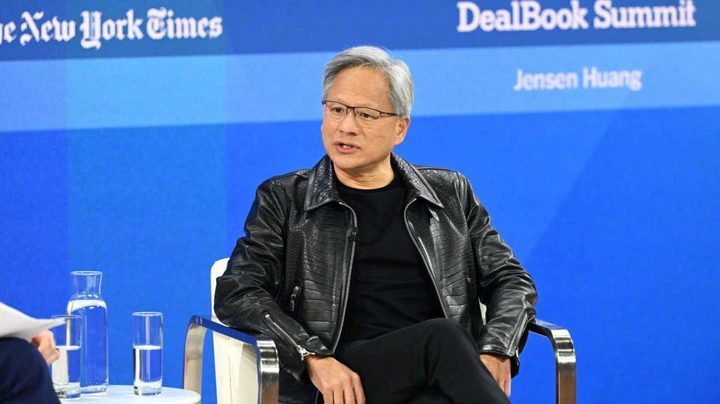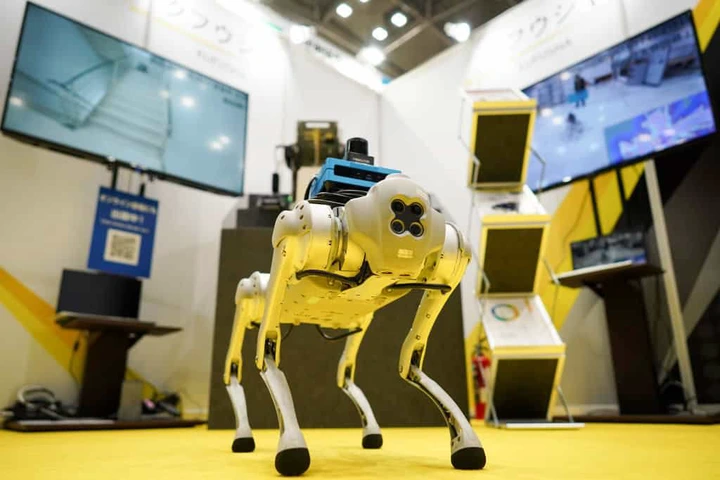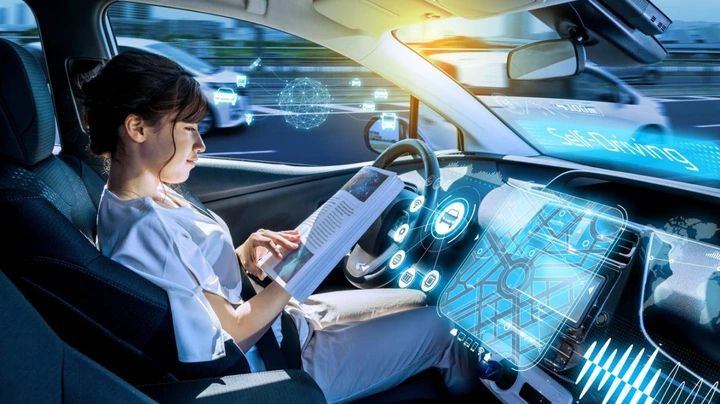24/7 Wall St. Essential Highlights:

View pictures in App save up to 80% data.
Nvidia (NVDA) CEO Jensen Huang gave the keynote address at CES 2025 last week, revealing not only his company's groundbreaking developments, but also where he sees the chipmaker heading.
Naturally, AI will be the driving force for economic, technological, and industrial growth globally.
Nvidia is at the forefront and is already shaping the multi-trillion-dollar opportunities today.
If you’re looking for some stocks with huge potential, make sure to grab a free copy of our brand-new “The Next NVIDIA” report. It features a software stock we’re confident has 10X potential.
There was a lot to unpack coming out of CES 2025 last week, not least of which was Nvidia (NASDAQ:NVDA) CEO Jensen Huang's vision for the future.
He gave the keynote address at the tech conference where companies revealed their latest breakthrough technologies and innovations. Nvidia had a few reveals of its own, not least of which was its Project DIGITS personal computer for researchers, data scientists, and developers to run comprehensive artificial intelligence models locally.
AI has undoubtedly taken center stage in Nvidia's future plans, leading Huang to focus his remarks on the current state of the technology and its prospective trajectory. He envisioned a future where AI not only improves our everyday experiences but also transforms entire industries, paving the way for multi-trillion dollar opportunities.
It predicts a more profound incorporation of AI into our tangible environment, which he refers to as "Agentic AI," alongside a revolution of the physical realm via "physical AI." Both of these present multi-trillion-dollar opportunities that Nvidia is at the forefront of, leading investors to keenly explore the implications for Nvidia's stock performance.
Undercover operative individual

View pictures in App save up to 80% data.
Nvidia's CEO Jensen Huang envisions robotics evolving into a "multi-trillion dollar opportunity."
Huang emphasized that AI agents are set to emerge as the next generation of digital labor, taking over tasks that are tedious, repetitive, or involve intricate decision-making. These AI agents will organize your schedule, provide customer support, and even oversee logistics operations in warehouses.
Huang suggests that this transition towards AI agents signifies a significant advancement from the existing trend of AI, which primarily emphasizes data processing and creation, to a form of AI capable of acting, reasoning, and engaging with the physical environment in a manner similar to humans.
This has the potential to transform industries such as manufacturing, healthcare, automotive, and beyond. AI might assume positions ranging from assembly line operators to self-driving car pilots, leading to cost savings, enhanced efficiency, and the creation of new sectors. Huang remarked that Agentic AI represents "a probable opportunity worth multiple trillions of dollars."
Let's embrace the physical!

View pictures in App save up to 80% data.
The potential value of autonomous and fully self-driving vehicles, including cars and trucks, could reach trillions of dollars, highlighting their significance to the global economy.
After discussing "Agentic AI," Huang presented the idea of "Physical AI," which extends AI capabilities beyond the digital space to engage directly with the physical environment. Physical AI encompasses systems that can sense, analyze, strategize, and execute tasks in real-world settings. This involves training robots to comprehend physical principles, manipulate objects skillfully, and move through areas intended for human use.
Huang suggested that this might mark "the ChatGPT moment for general robotics," indicating a future where AI-powered robots are as ubiquitous and revolutionary as AI has become in our online communications.
For instance, Nvidia's Cosmos platform positions the company as a leader in facilitating this transition by offering essential models that may pave the way for robots to be integrated into households, manufacturing sites, and other environments, thus generating significant economic prospects.
Arguably one of the most exciting areas Huang mentioned was in autonomous vehicles. Nvidia's partnerships with companies like Toyota (NYSE:TM) and Aurora Innovation (NASDAQ:AUR) for self-driving technology suggest a future where cars and trucks drive themselves, reducing accidents, traffic, and the need for human drivers in certain scenarios. This one sector alone could be valued in the trillions of dollars, considering the global economy's reliance on transportation.
Nvidia: Is it still the top tech investment for the future?

View pictures in App save up to 80% data.
Nvidia's stock has surged alongside the rise of AI, leading to a significant increase in its share valuation.
Nevertheless, the primary concern among investors is whether Nvidia stock continues to represent a solid investment opportunity. In recent years, Nvidia has experienced a significant surge in its stock price, largely attributed to its dominant role in AI chip production. While the stock's success is closely tied to the AI revolution, it’s essential to take a moment to reassess the situation.
NVDA stock has surged to high valuations, with shares priced at 56 times earnings, 30 times the projected earnings for next year, and 28 times its sales. This pricing indicates strong investor confidence in the company's growth prospects. However, given the significant rise in stock prices, there remains a constant risk of a pullback if the company fails to meet expectations or if the overall market experiences a downturn.
And Nvidia isn't alone in looking towards the future. Nvidia might be leading, but competitors like Advanced Micro Devices (NASDAQ:AMD) and Intel (NASDAQ:INTC) are not far behind. New entrants in AI chip design could challenge Nvidia's market share, too.
Another consideration is saturation, specifically how much AI hardware the market can handle before reaching a point of equilibrium or being overtaken by emerging technologies that could supplant existing solutions.
Main insights
Considering Huang's outlook and Nvidia's strategic stance, the stock presents an attractive opportunity for investors with a long-term perspective. Nvidia is not merely in the business of selling chips; it is also providing the foundational infrastructure for a future driven by AI. By concentrating on software development, forging partnerships, and venturing into emerging markets such as robotics and autonomous systems, the company is well-positioned to reap substantial benefits from the evolving AI landscape.
With Huang at the helm, Nvidia is poised to witness AI evolve into a multi-trillion-dollar sector, driven by advancements in agentic AI and robotics. Although the stock may appear pricey, the prospects for ongoing innovation and market growth position Nvidia as a compelling investment opportunity, assuming investors are ready to navigate the fluctuations that accompany such lofty ambitions.